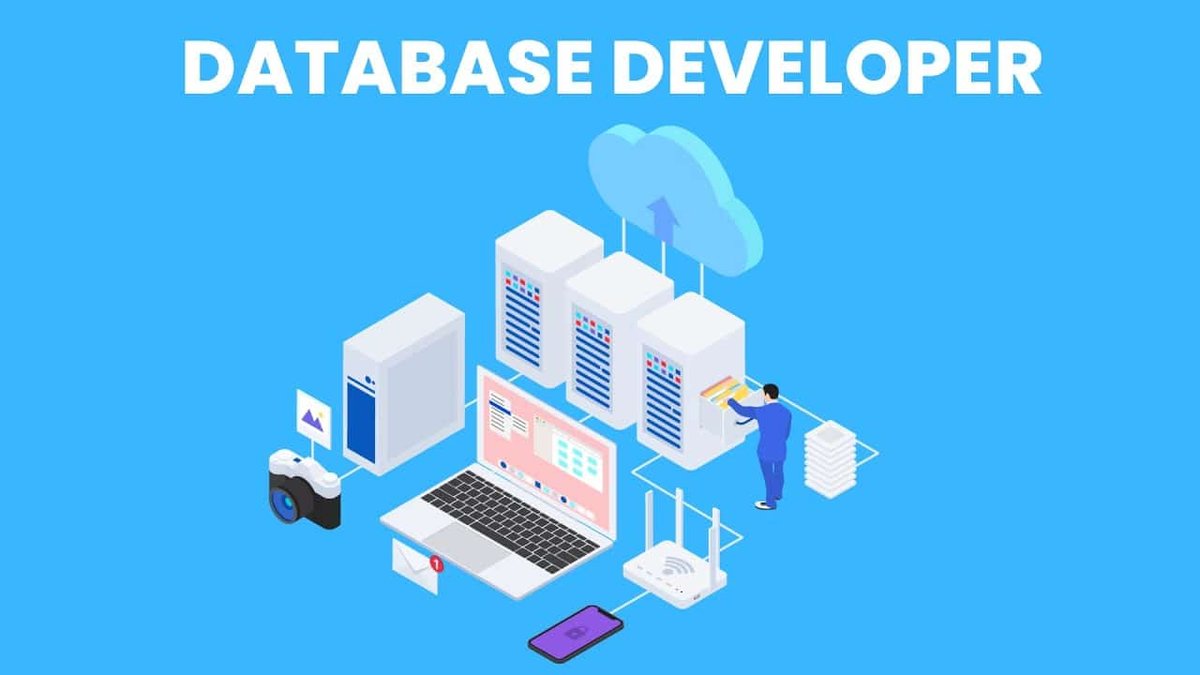With whopping salaries and highly sought-after positions in the data field, database developers are essential professionals driving the data-driven world forward. The average salary of a database developer in Australia ranges from $105,000 to $125,000 annually. In the U.S., an average salary ranges between $1,04,829 and $1,18,237 per year.
However, the payscale totally depends upon the industry, organization size and location. If you’re looking to begin your career as a database developer, then this article is for you. We will begin by highlighting the roles, responsibilities, and basic skills and move on with the educational criteria.
Database Developer: Roles and Responsibilities
Database developers, also known as database programmers and designers, are fully responsible for designing, programming, constructing and implementing new databases. They modify existing databases for platform updates and make changes as per requirements.
Organizations need database developers to help create data systems, troubleshoot issues, and maintain existing databases. However, the role and responsibilities may vary based on the position, organization, and industry type.
Oracle Corporation explains that database developers create databases to suit business needs and improve existing databases by expanding their range or functionality. The company adds that professional database developers may also be tasked with making decisions “related to appropriate database languages and technologies while ensuring development projects comply with database rules.”
Roles and Responsibilities
Develop database code that performs specific tasks, such as retrieving data for reports and creating, updating and deleting data as required.
Design and modify existing databases.
Develop new database applications.
Generate reports based on database reports.
Enforce database standards for IT requirements and business applications.
Establish documentation for new or existing databases.
Now that you’re aware of the roles and responsibilities of a database developer, and salary expectations, we will take a closer look at the prerequisites of starting a career in this field.
Step-By-Step Guide
Candidates seeking a career as a database developer can follow the below paths.
Educational Requirements
Most organizations prefer candidates with a bachelor’s degree or master’s degree in IT, computer science, computer programming and engineering. However, acquiring professional certification in database-related specialties will attract potential employers.
These courses must include skills in database packages and programming languages – SQL and ETL. Some employers will likely hire entry-level database developers with two years of work experience in database administration.
Technical Skills
Technical skills play a significant role for candidates seeking a career as a database developer. It is crucial to have hands-on experience in technical skills such as SQL, BI Tools, PL, MySQL and Oracle databases.
Many organizations prefer candidates with programming knowledge of Java, C, C++, XML, Application Express (APEX) and an in-depth understanding of different operating systems.
Candidates must also be able to conduct the following tasks:
Update existing data in a table.
Insert data in a table.
Delete data from a table.
Retrieve data from a table using techniques such as subqueries, aggregate functions, and ordering and grouping.
Using and creating functions.
Table aliases and column aliases.
Certifications
Earning certifications is an added advantage for candidates looking to pursue a career in the field. Additionally, working on some real-world projects adds credibility to the resume. Having a few certifications and projects highlighted can get you the job you’ve always desired. For an entry-level job, earning a certification can help you stand out among multiple candidates. We have listed a few database certifications for you to start with.
Oracle Database Certifications
IBM Certified Database Administrator
Microsoft Certified Database Administrator
Other vendor-neutral [certifications not tied to a specific database product] certifications include.
Certified Big Data Professional
Public Sector Data Governance Professional
Good-to-have certifications from Oracle, IBM and Microsoft.
IBM Certified Database Associate
Oracle Database Certified SQL Associate
Microsoft Certified: Azure Data Fundamentals
Conclusion
According to the U.S. Bureau of Labor Statistics, the job outlook of database developers will grow by 9% between 2023 to 2033. The report highlights that the employment outlook will be largely influenced by the increasing volume of data generated each day.
Related: Data Sovereignty: How Blockchain Secures Student Privacy and Identity
Related: How to Solve Data Analysis and Processing Issues in Computer Vision
The post How To Become a Database Developer: Step-By-Step Guide appeared first on The Next Hint.

